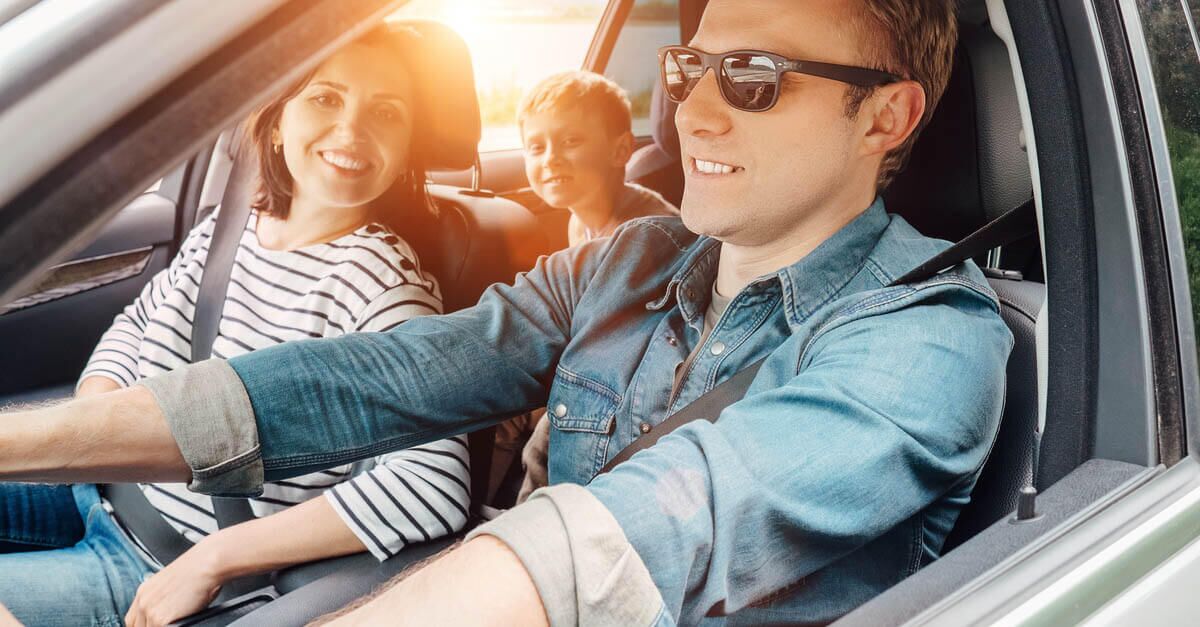
The COVID-19 quarantine has most of us a bit squirrelly. We’re ready to escape the confines of home and hit the road.
If you’re like most of us, you’ve got stuff to do and you’ve been waiting for weeks to get at it. Whether returning to the workplace, running errands, or striking out on a long-awaited vacation, you’re ready for the independence of driving to your chosen destinations.
Driving is in Americans’ DNA. It’s who we are and how we express ourselves. Being cloistered at home has stifled our native instincts. Surveys show that most of us treasure our driving privilege and are returning to the open road.
Drivers across the U.S. became decidedly more active on the road the week of May 12 than at any time since the coronavirus lockdown began, according to an AP analysis of StreetLight Data Inc., an analytics software company. Still, activity is down 49% compared to January 2020 and well below what would be expected in the spring under normal circumstances.
Driving Safety Tips After Quarantine
While you were on lockdown through the coronavirus pandemic, your car was too. For this reason, it’s smart to plan ahead to make sure it’s fully safe to drive again. Here are a few tips from AAA if your vehicle has been parked for 45 days or fewer:
- Check tire pressure. If the vehicle has been sitting, the tires will lose air. This can create an unsafe situation, possibly even a blowout.
- Check your battery. Even if the vehicle starts when you crank it, the battery may need attention. Look for white corrosion around the battery terminals. Corrosion can affect the battery itself, causing it to become partially burned inside. Eventually, you may find it difficult to start.
- Check fluids. Make sure transmission fluid, windshield wiper fluid, brake fluid, antifreeze, and power steering fluid are at appropriate levels.
- Keep your vehicle insured. This protects against insurance claims due to unforeseen circumstances and can also prevent increases in premiums if there is a lapse in coverage.
After weeks of sitting idle, you and your car need a bit of adjustment to the demands of streets, highways, and freeways that are part of our life. Taking a break from driving can take a toll on your driving abilities and confidence. You may be feeling a bit rusty.
Others around you, however, may be recklessly overconfident. There’s been a surge in speeding and reckless driving on the nation’s highways. Reports of drag racing and other speed-related activities are occurring, according to the Washington Post. Speeding tickets are on the rise. Although traffic nationwide is down 41%, crashes have only dropped 21%. Every mile is riskier.
Increase your defensive driving skills, being aware that some motorists think every road is their own personal Autobahn. And if you find yourself the victim of a serious automobile accident, contact the experienced team at Jebaily Law Firm. We can help you explore every possible legal avenue to bring you justice.
How to Reduce the Risk of the Coronavirus in Your Vehicle
While states are reopening to allow residents to return to a normal life, issues arise. For instance, how do you protect yourself from COVID-19 if you share rides with others? Consider these recommendations for drivers and passengers from the Centers for Disease Control and Prevention:
- Avoid touching surfaces.
- Avoid contact with surfaces frequently touched by others, such as the door frame and handles, windows, and other vehicle parts. In circumstances where such contact is unavoidable, use a hand sanitizer containing at least 60% alcohol as soon as possible afterward.
- Avoid accepting offers of free water bottles and avoid touching magazines or other items that may be provided for free.
- Use touchless payment when available.
- Practice social distancing.
- Limit the number of passengers in the vehicle to only those necessary.
- Avoid pooled rides or rides where multiple passengers are picked up who are not in the same household.
- Sit in the back seat in larger vehicles such as vans and buses so you can remain at least six feet away from the driver.
- Improve ventilation.
- Ask the driver to improve ventilation in the vehicle if possible by opening the windows or setting the air ventilation/air conditioning on non-recirculation mode.
- Practice hand hygiene.
- After leaving the vehicle, use hand sanitizer containing at least 60% alcohol.
- When you arrive at your destination, wash your hands with soap and water for at least 20 seconds.
Get in Touch With Our Car Accident Lawyers
In these uncertain times, some people returning to the nation’s highways after a long hiatus are behaving in unpredictable ways. Despite your best efforts, you may find yourself in a serious accident that’s not your fault. It’s time to take bold, decisive action.
Contact Jebaily Law Firm now, while witnesses can be found and evidence is still fresh. We offer the knowledge, resources, and determination to help you make things right if you were wronged or injured. For 50 years, we’ve been serving the people of Florence, Myrtle Beach, eastern South Carolina, and points between.
We realize that your needs don’t stop during the COVID-19 pandemic. In fact, your needs may be more pressing now than ever before. During this unprecedented time, we offer virtual appointments. This allows you to meet with us from the comfort and safety of your own home at a time that’s convenient for you. You can be assured of our confidentiality.
Jebaily Law Firm’s car accident lawyers bring you more than 100 years of combined legal experience. We stand ready to hear your story, evaluate your options, and help you reconnect the pieces of your life. Your initial consultation is free. We get paid only when you do.
